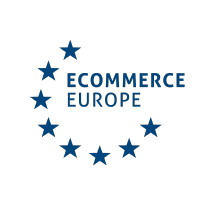Ecommerce Europe – Letter to DG TAXUD
Joint letter
Mr. Patrice Pillet
Head of Unit TAXUD.C.1
European Commission
Rue de Spa 3
1000, Belgium
Brussels, 3 March 2021
Dear Mr. Pillet,
Ecommerce Europe, the voice of the European Digital Commerce industry, would like to thank you and your team for the continuous efforts to deliver a successful implementation of the upcoming major EU VAT changes for e-commerce from July 2021. With the UK withdrawal from the EU Single Market and the COVID-19 resulting in a significant increase in e-commerce purchases, the import volumes will increase significantly, leading to additional challenges for local customs administrations and to increased attempts by non-EU rogue traders to penetrate the EU internal market with unfair practices. In an era of digitalisation and increased e-commerce activity, the modernised VAT rules for cross-border e-commerce hold the potential to simplify VAT compliance for businesses boosting their online growth, optimise VAT collection for Governments, help fight fraud and bridge the VAT gap.
However, we would like to bring to your attention a number of outstanding issues that have been flagged by our members and would need to be addressed before the application date, for a smooth and successful implementation for consumers, impacted businesses and Governments.
- Member States’ operational readiness
The Commission has already showed a forward-looking approach with regard to the implementation by postponing the entry into application of the expanded Union OSS scheme and the new Import OSS by 6 months, to 1 July 2021. This was also due to the fact that some EU Member States had declared that they needed more time to set up the necessary technical framework, especially in light of the shift of focus caused by the COVID-19 pandemic. As Ecommerce Europe already previously stated, the postponement should allow Member States and businesses to better prepare for the new rules, adapting or developing the national IT systems.
However, 10 Member States have provided no information on the full technical specifications so far, while 5 others will only partially publish them. Furthermore, some Member States have declared that the necessary VAT and Customs IT systems will not be ready in time and are replanning beyond 1 July 2021, a scenario that would create serious issues for consumers and businesses. First and foremost, having the IT systems ready in all EU Member States except for one or two will nullify the efforts of both the Commission and the other Member States in ensuring to be ready on time, by creating a gap in the implementation scheme, which could be exploited for unfair trading practices, have a distortive effect on market competition, and ultimately lead to potential losses in VAT collection at Member State level.
In particular, Germany and the Netherlands, two of the largest e-commerce import countries, have publicly declared that they will not be fully ready with the OSS and IOSS systems by the July 2021 deadline.
In Germany, on 3 November 2020, the Federal Ministry of Finance announced that the new German customs system will be ready for usage from Q1 2022, although applications to register for IOSS VAT ID Numbers will be accepted by 1 April 2021. The statement has been confirmed by the German Customs on 17 February 2021 during a webinar. Hence, registration will be possible, but the necessary certification for those planning to use the new customs application compliant with the EU VAT E-commerce Package will only start in Q4 2021 at the earliest.
In the Netherlands, on 19 January 2021, the Dutch Ministry of Finance addressed a letter to the Lower House of the States General claiming that the Netherlands would not be ready to set up an (I)OSS by 1 July 2021, but rather they would make available an emergency facility as a replacement. However, the facility would still need a manual input from the tax authority and traders, and it may also not be sufficiently capable of bearing a high number of registration entries, which could ultimately lead to increased chances of error and longer processing/clearance times.
Therefore, Ecommerce Europe would like to ask the European Commission to provide clarity to the impacted businesses on the IT readiness of Member States, in order to provide more certainty and transparency to the process. In the event that one or more Member States would not be able to meet the timelines, Ecommerce Europe calls on the European Commission to consider taking appropriate actions and ensure a crucial dialogue with businesses and other impacted stakeholders on possible contingency plans.
- Member States’ unilateral measures that deviate from the aims of the EU VAT E-commerce VAT Package
To ensure legal certainty and consistency for businesses, it is important that Member States consistently transpose the EU VAT E-commerce Package in their national legislation. National deviations or unilateral approaches make it complex and costly for businesses to prepare and undermine the harmonisation and simplification objectives of the reform. Ecommerce Europe therefore flags the following implementation anomalies at Member State level that are of key concern:
- Germany’s implementation leaves in place the marketplace VAT liability for platforms to check if their EU sellers have a regular VAT registration in Germany[1]. The updated German VAT regulation may lead to the situation that compliant online sellers are either blocked from selling cross-border on marketplaces or to VAT registering in every EU country in which they sell. This is contrary to the aims of the EU VAT E-commerce Package and the VAT simplification purpose of the extended Union One Stop Shop procedure, in particular important for small and medium sized businesses that more than ever are relying on their online sales channels to recover from the COVID-19 lockdown measures and grow their business.
France’s implementation law[2] liable is making facilitating marketplaces liable for import VAT on all B2C imported consignments, including those with a value exceeding €150 where no IOSS simplified VAT collection system is available. This implies further red tape and burdensome practices for online platforms. Moreover, from exchanges held between several of our members and the French tax and customs administrations, it would appear that no operational guidelines nor the necessary IT system has been or will be put in place to enable online marketplaces to comply with the French Law in particular as regards high value consignments that are not eligible for IOSS (> €150) and to allow the exchange of necessary information on shipments for those service providers that do not engage in logistics operations. This raises several concerns regarding the collection of customs duties,
- potentially leading to a situation where platforms will be required to fully or partially block third party sales into France. This goes beyond the scope of the EU VAT E-commerce Package and is contrary to the EU proportionality principle.
As both Germany and France are important e-commerce market countries, Ecommerce Europe requests the European Commission’s legal services to look into these matters and to take appropriate actions.
- Transition period
To conclude, Ecommerce Europe would like to bring to your attention the fact that no transition period has been foreseen between June and July 2021, with no clear indications of how to prevent double taxation for imported distance sales where the order/payment completes before 1 July and import clearance happens from 1 July. In this case, VAT will be collected at importation without IOSS. Approximately, more than 6.5 million items are shipped daily in the EU with an average shipment timeframe of 7 days. Therefore, Ecommerce Europe would like to ask the European Commission to consider the possibility to introduce a transition period of 7-14 days between June and July. Alternatively, the intrinsic value of goods purchased and shipped across the date of entry into application could be fixed to the date of purchase, similarly to what has been introduced by the UK government for the new UK VAT rules applying from 1 January 2021.
Ecommerce Europe looks forward to hearing from the European Commission about the concerns we raised in this letter and we remain available to discuss and provide further information, if needed.
Yours sincerely,
Luca Cassetti
Ecommerce Europe Secretary General
Cc: Ludwig de Winter, Deputy Head of Unit, DG TAXUD.C.1.001
[1] German Annual Tax Act 2020 amending the German regulation on marketplace joint and several liability, as adopted by the Bundestag last December and applicable as from 1 July 2021. See in particular paragraphs 16 and 17 of Article 14.
[2] Loi n° 2019-1479 of 28 December 2019 modifying Art. 293 A ter of French Code général des impôts
Here you can download the letter to DG TAXUD (PDF)
About Ecommerce Europe
Ecommerce Europe is the sole voice of the European Digital Commerce sector. As a result of joining forces with EMOTA, Ecommerce Europe now represents, via its 23 national associations, more than 100,000 companies selling goods and services online to consumers in Europe. Ecommerce Europe acts at European level to help legislators create a better framework for online merchants, so that their sales can grow further.
Website: www.ecommerce-europe.eu

